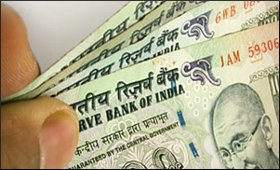|
|
|

|
New rules for several financial transactions to kick in from July 1
|
|

|
|
| Top Stories |
 |
|
|
|
SME Times News Bureau | 30 Jun, 2020
Several changes will kick in for financial transactions from July 1, which will directly impact consumers at all levels.
These
changes include PF rules, ATM withdrawal charges, Atal Pension Yojana,
registration in Kisan Samman Nidhi, mutual funds, minimum account
balance, among others.
The Central government has relaxed rules
to withdraw money from the Employees' Pension Fund (EPF) during the
lockdown imposed for the prevention of coronavirus.
In view of
the scarcity of cash with the people, the Finance Ministry had provided
emergency withdrawal facility from the EPF and the last day of
application is on June 30. Shareholders could withdraw an amount which
was less than thrice the basic salary and dearness allowance or 75 per
cent of the total deposit amount.
In addition, the bank ATM cash
withdrawal rules are going to change from July 1. During lockdown, norms
for cash withdrawals from a bank ATM were relaxed but are now going to
be tightened. The relaxation was announced for three months — April,
May, June - and the deadline is June 30. If there is no extension
announced, then the old ATM withdrawal rules will get reinstated.
From July 1, ATM transactions would become expensive for all SBI customers.
From
July, the rule of minimum balance in the savings account will end. If
there is no minimum balance in the accounts, the bank will be able to
charge a penalty on it. Currently, according to the metro city,
semi-urban and rural areas, the limit for keeping a minimum balance in a
savings account in different banks is different.
A minimum
balance of Rs 3,000 is required in metro cities, Rs 2,000 in semi-urban
areas and Rs 1,000 in rural areas on the accounts of State Bank of India
(SBI). At the same time, this amount in HDFC Bank is Rs 10,000, Rs
5,000 and Rs 2,500 respectively.
From July 1, auto debit of monthly contribution will start from Atal Pension Yojana accounts.
The
Pension Fund Regulatory and Development Authority had, in April,
directed banks to stop the auto debit of Atal Pension Yojana till June
30. Now from July 1, auto debit facility will be started once again.
Most
of the subscribers under this scheme are from the lower strata of the
society and have been facing severe crunch due to the lockdown. A recent
PFRDA notification stated that the penalty interest will not be levied
if the subscriber's pension scheme account is regularised before
September 30.
The last date for payment of the Sabka Biswas
Yojana, introduced for resolution of old pending disputed matters
related to service tax and central excise, is June 30 and this scheme
cannot be availed from Wednesday.
The government has made it clear that it will not extend this scheme beyond June 30.
In
this context, the Central Board of Indirect Taxes and Customs (CBIC)
had given information, in a tweet, that 1.9 lakh declarations of Rs
90,000 crore have been filed under this scheme. If this is not paid by
June 30, 2020, they will not get benefits.
Under the Prime
Minister Kisan Samman Nidhi Yojana, Rs 6,000 is given to the farmers in
three installments of Rs 2,000 every year.
So far five installments have been sent to the farmers. The scheme can be registered for by June 30.
Investors
will also have to pay stamp duty on purchasing mutual funds from July
1. Even if you are investing in mutual funds through Systematic
Investment Plan (SIP) and Systematic Transfer Plan (STP), you still have
to pay stamp duty.
However, investors will not have to pay stamp
duty on the withdrawal of mutual funds. This stamp duty will be levied
on all types of mutual funds. The effect of stamp duty will be seen most
on debt funds.
Purchase of mutual funds will attract stamp duty
at 0.005 per cent. Apart from this, transfer of units of mutual funds
from demat account will attract stamp duty of 0.015 per cent. The
imposition of stamp duty will affect the holding of 90 days and less.
|
|
|
| |
|
|
|
|
|
|
|
|
|
|
|
|
|
|
| |
| Customs Exchange Rates |
| Currency |
Import |
Export |
US Dollar
|
₹91.25
|
₹89.55 |
UK Pound
|
₹122.85
|
₹118.85 |
Euro
|
₹107.95
|
₹104.3 |
| Japanese
Yen |
₹59 |
₹57.1 |
| As on 29 Dec, 2025 |
|
|
| Daily Poll |
 |
 |
| What is your biggest hurdle to scaling right now? |
|
|
|
|
|
| Commented Stories |
 |
|
|
|
|
|
| |
|